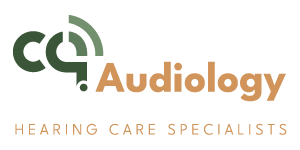Contact Us
We would love to speak with you.
Feel free to reach out using the below details.
Visit our main clinic
- T33 & 34A, City Centre Plaza, 24 Fitzroy Street, Rockhampton, QLD 4700
Get In Touch
- Phone: (07) 4848 6528
- Email: reception@cqaudiology.com.au
Trading Hours
- Mon-Fri 9:00AM - 5:00PM
- Sat 9:00AM - 12:00PM
Get a callback
Fill out the form below and we will contact you as soon as possible!
CQ Audiology Visiting Sites
BARCALDINE
Barcaldine 60 & Better Program
13 Willow Street
QLD 4725
BILOELA
Ace Medical Centre
48 Grevillea Street
QLD 4715
BLACKALL
Blackall Hospital
189 Landsborough Highway
QLD 4472
BLACKWATER
North Blackwater General Practice
14 Blain Street
QLD 4717
EMERALD
Lot 1 Pilot Farm Road
QLD 4720
MOUNT MORGAN
41 Morgan Strreet
QLD 4714
ROCKHAMPON CITY
T 33 & 34A City Centre Plaza
24 Fitzroy Street
QLD 4700
TAMBO
Tambo Multi Purpose Centre
26 Arthur Street, Tambo Queensland 4478
LONGREACH
North & West Queensland Primary Health Sercvies
19 Duck Street, Longreach Queensland 4730
YEPPOON
Keppel Bay Medical Centre
Shopt 26, Keppel Bay Plaza
64-67 James Street
QLD 4703

Experience Unmatched Clarity with Hearing Test in Depot Hill Rockhampton
Why Do I Need a Hearing Test?
Do you need a hearing test Depot Hill Rockhampton? Have you ever considered how vital your hearing is to your daily life? Whether it’s chatting with friends, enjoying your favorite music, or staying alert to your surroundings, your ears play an essential role. Yet, you might be overlooking the gradual changes that can signal hearing loss. Regular hearing tests are key, not just for detecting hearing loss, but also for ensuring that any underlying health issues are caught early. Think about the last time you had your hearing checked—has it been too long? Stick around to uncover more about how these tests can significantly enhance the quality of your life.
Importance of Regular Hearing Tests
Regular hearing tests are essential to catch any issues early and prevent further damage to your hearing. If you’re over 60, it’s recommended that you have your hearing checked annually. However, if you’re younger, every 3 to 5 years should suffice unless you notice problems sooner. These regular check-ups aren’t just a formality; they’re a crucial part of maintaining your overall well-being.
For children, early hearing tests are vital. They play a significant role in language development and in identifying any hearing issues that could affect their learning and social interactions. Addressing hearing problems early in life can drastically improve educational outcomes and personal development.
Moreover, sticking to a regular hearing test schedule can help in reducing cognitive decline associated with hearing loss. By catching and managing hearing loss early, you’re not only looking after your ears but also supporting your brain health. Regular testing allows you to monitor changes in your hearing, making it easier to adjust to any necessary lifestyle changes to accommodate your hearing needs. This proactive approach ensures that you maintain a high quality of life, regardless of your age or initial hearing condition.
Early Signs of Hearing Loss
If you’re struggling to follow conversations in noisy places, it might be an early sign of hearing loss. This difficulty often starts subtly but gradually worsens. You might also find yourself frequently asking others to repeat themselves. It’s not just about not catching words here and there; it’s a consistent issue that can be frustrating both for you and those you’re communicating with.
Another common symptom is turning up the volume higher than usual on your TV, radio, or other electronic devices. If others comment that your volume is too loud, yet it seems normal to you, this could indicate your hearing isn’t as sharp as it used to be.
Additionally, if you’re experiencing ringing or buzzing sounds in your ears, known as tinnitus, this could also be a sign of hearing damage. While it’s often more of an annoyance than a serious issue, tinnitus frequently accompanies hearing loss.
For children, a delay in speech and language development can often be linked to hearing issues. If a child isn’t hearing well, they mightn’t pick up and mimic sounds as expected. This can significantly affect their ability to learn and communicate effectively.
Types of Hearing Tests Available
You have several options when it comes to hearing tests, each designed to address specific needs and age groups. One common method is pure tone audiometry, which measures how well you can hear sounds at different pitches and volumes. This test is particularly useful for adults and older children, providing a clear picture of hearing ability across a range of frequencies.
Another vital test is tympanometry, which evaluates the condition of your middle ear and eardrum. This test isn’t about how well you can hear different sounds; instead, it checks the pressure in your middle ear and how your eardrum moves. It’s crucial for identifying issues like fluid in the ear or eardrum perforations, which can affect your hearing clarity.
For infants and toddlers, who can’t respond to traditional hearing tests, objective measures are used. These tests, unlike behavioral ones, don’t rely on subjective responses. They measure the function of the inner ear and the hearing nerve, ensuring any hearing impairments are caught early without needing the child’s active participation. Each test type is tailored to provide accurate assessments, helping to guide further treatment or management of hearing conditions.
Hearing Tests for Different Age Groups
Given the variety of hearing tests available, it’s important to choose one that’s appropriate for your age to ensure accurate results. Adults generally undergo pure tone audiometry, which accurately measures hearing levels across different frequencies. This type of test involves listening to various tones through headphones and indicating when you can hear them, pinpointing your hearing thresholds.
For babies and young children, the approach is quite different. They can’t respond in the same way adults do, so behavioral and objective tests are used instead. Behavioral tests observe a child’s response to sounds, such as turning their head or showing surprise, which can indicate how well they hear. Objective tests, like measuring otoacoustic emissions or auditory brainstem responses, don’t rely on active participation. These tests assess the function of the inner ear and the hearing nerve, providing crucial insights into a child’s auditory capacity without needing their cooperation.
Early detection of hearing issues is critical. Tailoring the hearing tests to age-specific needs ensures any problems are caught and managed early, leading to significantly better outcomes. Don’t put off getting the right test for your or your child’s stage of life; it could make all the difference.
Understanding Your Audiogram Results
Receiving your audiogram results marks the first step in understanding the specifics of your hearing health. An audiogram is a detailed chart that outlines how well you can hear various frequencies of sound. It displays your hearing thresholds, which are the softest sounds you can hear at different pitches, measured in decibels (dB). This chart helps pinpoint the degree and type of hearing loss you might have.
Your audiogram will include lines showing results for air and bone conduction tests. Air conduction measures how well sound travels through the outer and middle ear to the inner ear. Bone conduction, on the other hand, tests the direct transmission of sound vibrations to the inner ear, bypassing the outer and middle ears. Comparing these two can help identify where your hearing issues originate—whether in the inner, outer, or middle ear.
Managing and Treating Hearing Loss
Once your hearing loss is identified, exploring treatment options is essential to manage the condition effectively and maintain your quality of life. Early intervention is key, as it can prevent further deterioration of your hearing and improve your overall well-being.
Hearing aids are often the first step in treatment. They can significantly enhance your ability to communicate and interact socially, reducing feelings of isolation. Depending on the type and severity of your hearing loss, you might also consider other assistive devices tailored to make daily life easier.
In some cases, surgery or medication may be appropriate. These options are typically explored when hearing loss is due to structural issues or underlying medical conditions. It’s crucial to consult with a healthcare professional to determine the best course of action based on your specific needs.
Regular monitoring is also vital. Follow-up appointments and tests help track the progress of your hearing health and ensure your treatment remains effective. This ongoing evaluation allows adjustments to be made to your treatment plan as needed, ensuring you continue to enjoy improved communication and a better quality of life.
Why Choose CQ Audiology for hearing test?
When considering where to get your hearing tested, CQ Audiology stands out due to its state-of-the-art equipment and expert audiologists. You’ll find their facilities equipped with the latest technology, ensuring your hearing test isn’t only accurate but also comfortably conducted. The audiologists at CQ Audiology are highly trained and provide detailed, easy-to-understand analyses of your test results. This means you’re not just getting a hearing test; you’re gaining a comprehensive understanding of your hearing health.
Moreover, CQ Audiology makes it easy to schedule an appointment that fits your busy lifestyle. You won’t have to put off important hearing tests because of a tight schedule. They offer flexible options to ensure you can get tested at your convenience.
Personalised care doesn’t end with the test. Based on your results, CQ Audiology offers tailored treatment plans designed specifically for your hearing needs. They prioritise your comfort and satisfaction throughout the process, making sure you feel supported and informed every step of the way. Choosing CQ Audiology means opting for a service that truly cares about your auditory health.
DISCLAIMER: The content on our site is intended for educational purposes only and should not be interpreted as an endorsement or recommendation of any treatments or products without a comprehensive hearing assessment. Users should seek professional advice and fully understand any potential side effects or risks before starting any treatment. Products mentioned on our site are not available for purchase by the public without prior consultation with a hearing health expert.
